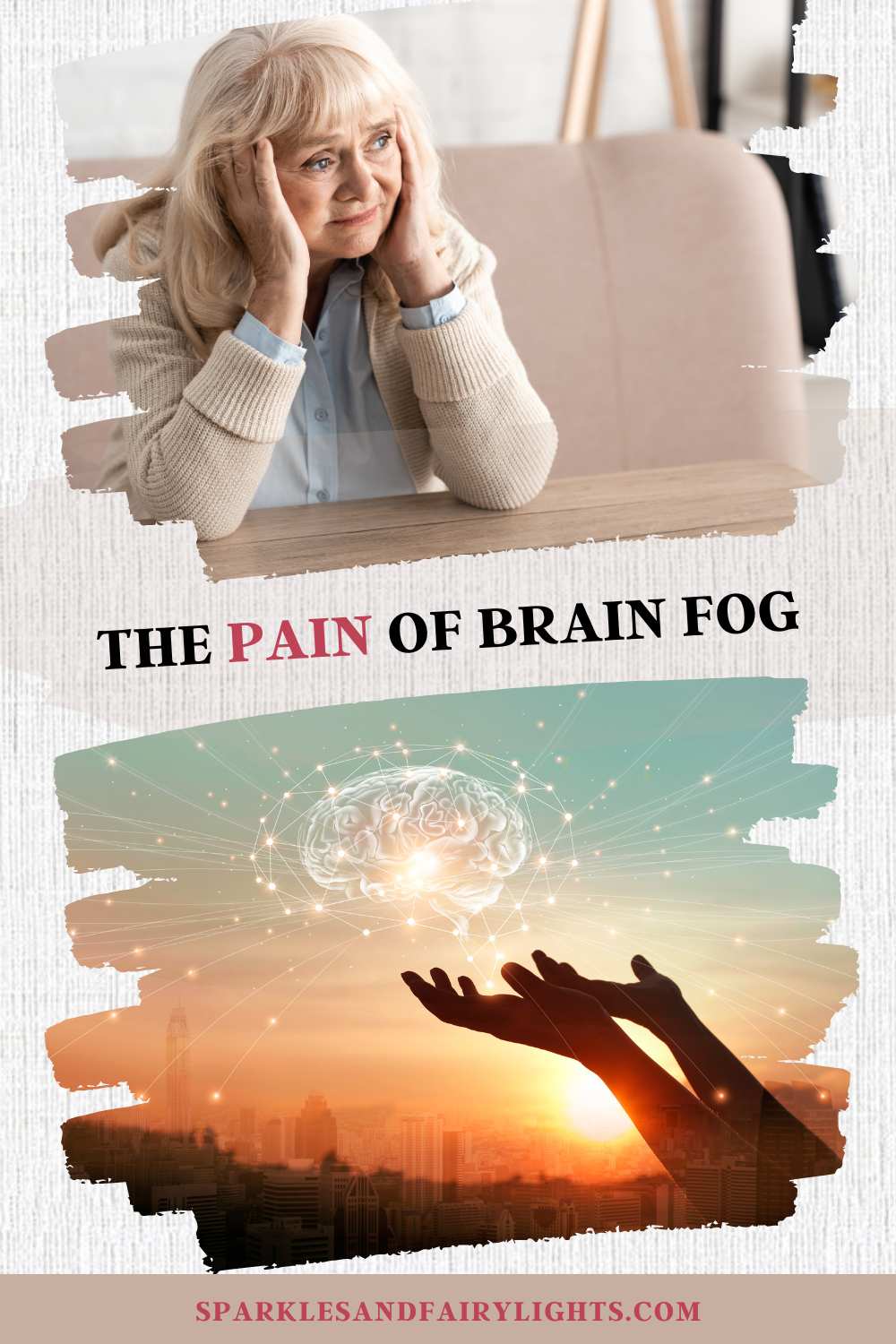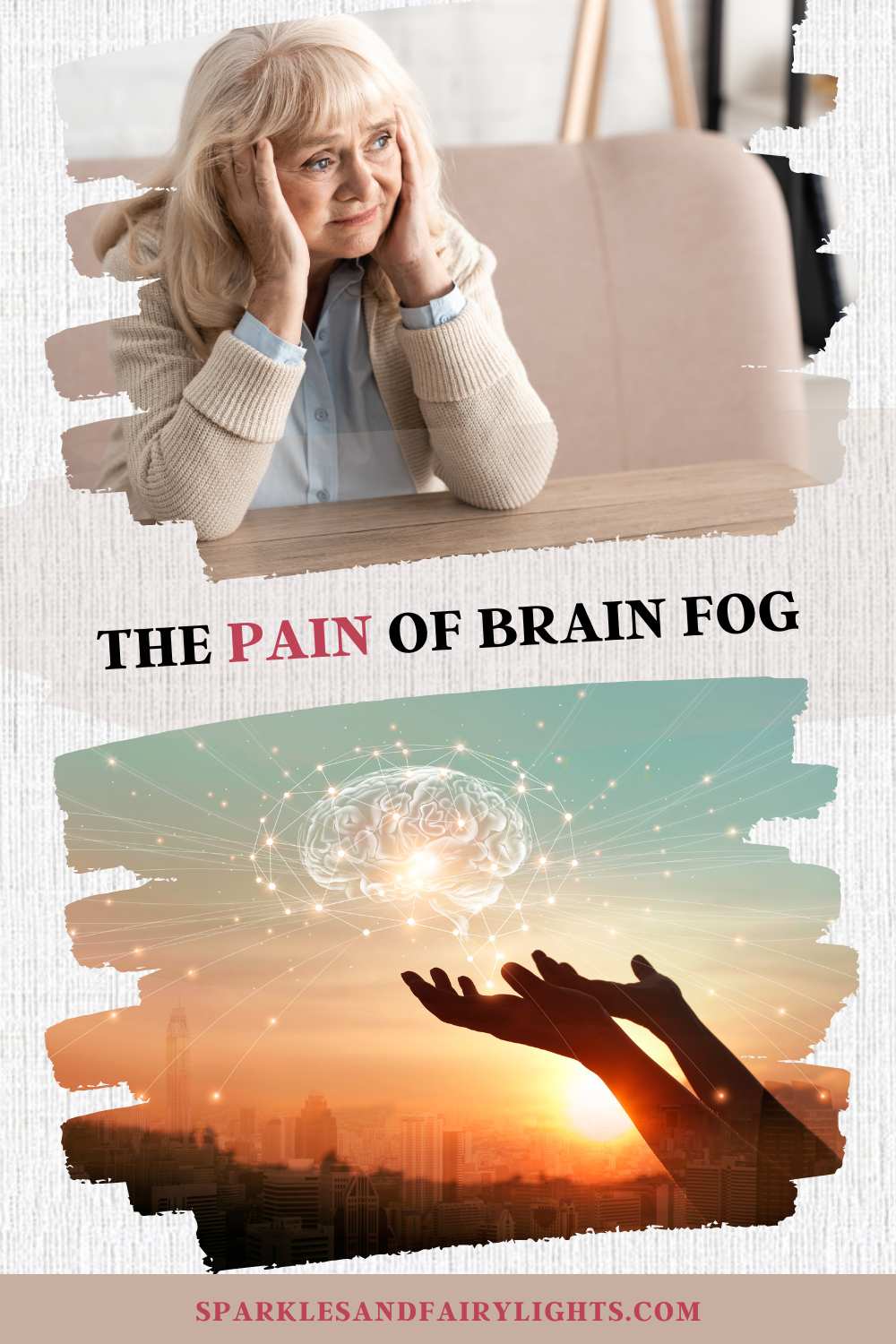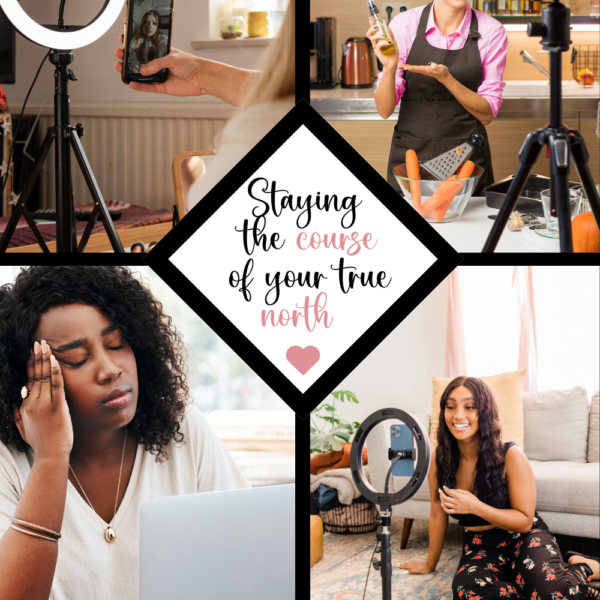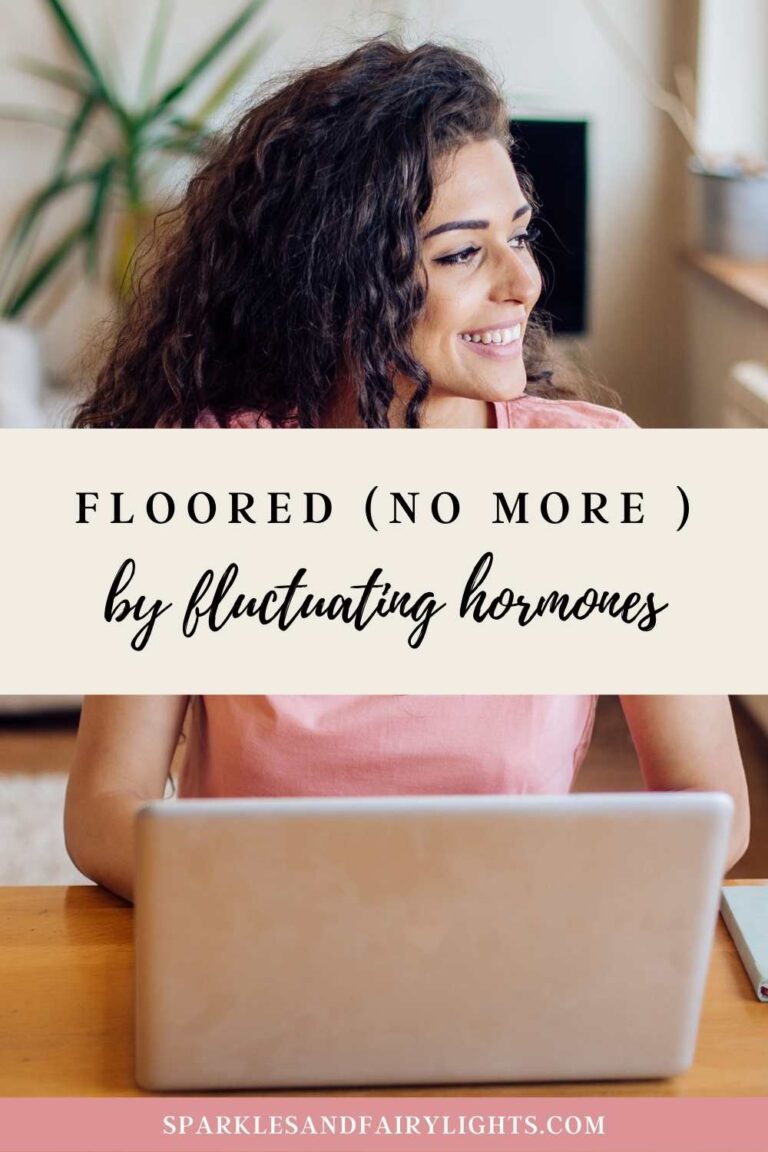The pain of brain fog
This topic of discussion is really close to my heart and if you can relate, I hope it goes some way to putting your #mind at ease. That said, are you aware that fluctuating hormones during perimenopause can have a huge impact on women’s #brains? I discovered this fact through a few traumatic events.
Confusing and unsettling events
My introduction to it came like a bolt from the blue and was inordinately unsettling to say the least. My first recollection that something untoward was happening was when I realised that I was unable to recall the name of somebody at the office or that I battled to execute a task that I did automatically most days. I was mortified and utterly terrified as you can well imagine.
However, in the beginning, though confusing, these incidents were few and far between. I carried on as per normal. I pretended there was nothing to worry about. Up to that point, I was known to have had quite good memory and it probably bugged me more for that reason. You see, my Dad had battled with #Alzheimer’s and I knew how debilitating that was and I wish it on nobody, trust me.
But back to the brain situation. I had accepted that I was forgetting certain facts in the sphere of general knowledge – song and movie titles as well as musicians and film stars. I just thought it was because I had grown out of things, that my interests had changed and I was genuinely forgetting because I hardly paid any attention to it or heard about these any more. It was comforting and helped me not to worry. However, I found that unsettling incidents started to occur more frequently and the fear I experienced increased exponentially as a result.
Memory short-lived

Additionally, I discovered that more #women, the ratio is 2:1, are known to develop Alzheimer’s than men. Believe me, this was not comforting at all. The fear induced by brain fog – a term I heard about from women in other forums, articles and posts – is common. Many women, in fact, fear that it is the sign of early onset #dementia and have expressed that this is possibly the worst symptom affecting women at this stage of life.
So what kind of incidents am I referring to? I started to get confused about the meaning of certain words. I would sometimes forget what they meant altogether and the dictionary was my best friend on the job. My self-confidence took a hit like never before. There was a day I was in a meeting and I could not string my sentences together properly at all. I sounded so stupid, but luckily it was with a female colleague and I said it was the hormones without really getting into it.
In time, I would forget people’s names on a more regular basis. A name I mentioned mere minutes before would completely escape me later on. #Forgetfulness increased. My deficiencies were becoming more pronounced, I learned to laugh it off, but here and there I thought that people were starting to notice …
Can’t bank on my memory
I remember going to the bank, doing the usual bank-related errand, routinely mentioning my phone number that I had had for years at the beginning of the conversation with a clerk only to forget digits mid-conversation. Once again, a kind woman consoled me. The list goes on … I learnt to deal with it, but as you can imagine, it was not easy.
Then one day, while doing errands, my surroundings triggered bad memories. I remember that my state of mind was not the best then, but I continued on my mission to find some sourdough bread. I went to the specific bakery that I knew stocked it. I did not see any and promptly asked the woman behind the counter for shortbread. I just blurted it out.
Bready issue

I was completely bewildered and stunned but all the more so because I could not remember sourdough if my life depended on it. It was just gone. I racked my brain to remember but all that stuck was shortbread. I knew it was not that and I stared at the bemused woman completely perplexed and she asked me some more about it. I eventually mentioned round bread … I felt so small, a real idiot. I ran another errand and misunderstood another cashier, well in my defence; I just failed to understand what she said in the context that I was used to. But I felt so embarrassed and mortified. How did a day that started out with such promise leave me feeling so dejected?
That was a particularly gut-wrenching day and there were others. I remember having to put in petrol in my car and deciding to go to a petrol station in the opposite direction of where I needed to go. Excuse me? It was so jarring that my thinking was so obtuse that I just went home and aborted other errands. Writing this, I may start to blame those errands …
I identified that the times around my period were obviously the worst. What compounded the problem is that those too seemed to become more erratic and my fight for the routine and rituals I was used to were gone.
I have read of women who have mentioned that they #forget where they had put things. The ability to reason is diminished and basic things are forgotten. But what exactly is brain fog?
Not all in your mind
I would like to quote an excerpt from an article titled Menopause brain: the inability to think clearly is not ‘all in your mind’, as published in The Guardian on 9 October 2021 as follows: In perimenopause and the early stages of menopause, women describe changes in their ability to think clearly, make decisions and function well mentally. Some describe this as “brain fog”. They may experience difficulty assimilating and making use of new information.
We now know that this form of brain fog affects around two-thirds of menopausal and perimenopausal women. The cause is related to the effects of changing hormone levels on the female brain. The first hormone level to drop is usually progesterone, and this can be related to irritability, mood swings and brain fog. The drop in progesterone can also cause sleep disturbance. Sleep disturbance in itself can affect the brain’s ability to function optimally.
Disrupt work and cause dementia fears
Furthermore, in order to shed more light, I quote an excerpt from an article on The Conversation website, “Brain fog’ during menopause is real – it can disrupt women’s work and spark dementia fears” that was published on 14 December 2021.
“Women describe difficulties remembering people’s names or finding the right word in conversation. Some describe difficulties with concentrating or making decisions. As discussed in our recent review, these “subjective cognitive difficulties” appear to be linked to performance on tests of memory, recall and processing.
Difficulties on tests of verbal memory (learning and remembering information new words you have heard), verbal fluency (quickly retrieving words from your memory) and attention are seen in perimenopausal women.”
Again, it is possible that two out of three women will experience this during the transition to menopause itself. I wonder how many women actually know that it could affect them in varying degrees.
Let us imagine if you will, fighting to break glass ceilings your whole life, but at the zenith of your success, you are hit with debilitating brain fog. Just when you need to start reaping the rewards of years of hard work, you start to become inadequate to the task. It has been reported that women have given up really well-paying jobs and lucrative opportunities for this reason alone.
As a professional, you may feel lost when you know your subject matter, but all of a sudden you cannot remember information that you are all too well aware you have covered. And it is difficult to know whom one can turn to in those moments. In general, the workplace is often unforgiving and competitive. It is not something that one easily accepts – the feeling that you may be losing your faculties and usefulness is so perturbing – and you many feel very unsafe in your world.
Add to this that health anxiety is seemingly on the rise: more and more women are expressing the fear of being misunderstood by health professionals who they feel may not understand what is happening to these once lively, capable and phenomenal women who have suddenly transformed into these cranky, old ladies.
Friends experiencing this have found ways to adapt and laugh about it. To me, it has never been a laughing matter. My Dad’s battles always a stark reminder of a disease that slowly robs you of your mind and faculties.
The good news is that there is hope: lifestyle changes, including the right diet, can go a long way to help to reduce the symptoms.
Dr Lisa Mosconi
Perhaps because I investigated this period of life with Alzheimer’s at the back of my mind, I came across the work of Dr Lisa Mosconi, a world-renowned neuroscientist, who holds a PhD degree in Neuroscience and Nuclear Medicine attained at the University of Florence, Italy. She is an Associate Professor of Neuroscience in Neurology and Radiology at Weill Cornell Medicine.
Her Instagram post of 21 October 2021 resonated with me and I quote excerpts that were particularly helpful. It also highlights the need to keep telling others about this as well. I quote:
When people talk about menopause, it’s usually about the discomfort of hot flashes, or perhaps sleepless nights. But there are more mental and emotional challenges that can be set off by the hormonal #chaos of midlife. Anxiety, depression, brain fog, exhaustion, you name it. Symptoms can be so disruptive that many women are under the impression (read, terrified) that they are going crazy. Believe it or not, this is a very common reaction, one that needs to be met with facts and reassurance.
The problem is that there is no #education or #culture around menopause, which in turn means that too many women just don’t know what hit them! They feel blindsided by their bodies, let down by their brains, and failed by their doctors who also may not realize those symptoms are ‘just’ menopause. Over a third of women going to their GP with symptoms of menopause end up with a prescription for antidepressants!
Having sufficient knowledge when you are younger will also equip you to make decisions about your family and travel plans as well as make the whole process less traumatic in the future. As always, let me know your thoughts.
Latest posts
AI taking over the world? Not so fast …
Are you anxious about the effect of Artificial Intelligence (AI) on your life and livelihood? AI development is accelerating at such a break-neck pace that perhaps, like me, you are worried about future prospects and getting left behind. I have…
Staying the course of your true north
YouTube love story Turns out, YouTube is a Valentine’s Day baby. Founded 19 years ago in 2005, it has certainly transformed the content-creation landscape. Its advent heralded a time when authentic storytelling through the lens of a camera became more…
Hope, despite a turbulent start to 2024
Whatever I may have been expecting from 2024, it was not reading about the earthquake of magnitude 7.6 that struck Noto Peninsula of Ishikawa Prefecture, Japan, first thing in the new year. Neither was I prepared for a call from…
Rejoicing, mourning and harmony this Christmas
Advent Bittersweet Bittersweet perfectly encapsulates the experience many have this time of the year. Firsts are celebrated – first-time Moms, first baby steps, major milestones, first Christmases together, but also last Christmases are reflected upon. Grief and sadness trail not…
Second chances in life
Advent The Bible, the whole love letter, is about God’s love for us and his heart to give us all a second chance. The Second Coming is a pivot around which Advent is wound and why, this time of the…
- The human value and capacity driving copywriting in 2025 - March 6, 2025
- Authenticity, professionalism and hope in a curated world - February 6, 2025
- Authentic epiphany watching the trailer for “With love, Meghan” - January 27, 2025













